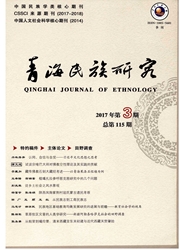

 中文摘要:
中文摘要:
当旅游已经成为我国民族社区发展动力时,旅游对民族社区社会文化变迁的影响也引起了学者的关注。作为传统文化主要承载者和维护者的民族社区传统文化精英,其在旅游发展过程中的权力变化并没有得到重视。本文以三亚凤凰镇回族社区为例,通过访谈、观察等方法了解旅游发展及冲突事件过程,从权力变化的视角探讨旅游发展对社区宗教精英产生的影响。研究发现:旅游的发展间接促进了村民对宗教权威的认同,强化了宗教精英对宗教事务的管理权;但在旅游引发的利益冲突中,宗教精英权力出现"外强内弱"的变化,传统权威被弱化,个人能力成为社区调解权力的基本支撑。宗教精英自身具有的灵活性和主动性,也在一定程度上抵制了旅游现代性带来的权力弱化,为进一步探讨如何破解现代化发展与传统文化延续间矛盾提供了借鉴。
 英文摘要:
英文摘要:
The influence of tourism on the social and culture change of national communities has drawn the concern of researchers when it becomes the motive force of development in such communities.The traditional culture elites,as the main carrier and vindicator,the change of their power in the development process has not been noticed yet Centered on Fenghuang town of Hui in Sanya and through the researching ways of interview and observation to know the tourism development and conflict events,the paper tries to explore the influence of tourism development on the religious elites in communities from the perspective of power change.The finding shows that such development indirectly prompts the identity of villagers to the religious authorities,reinforced the power of elites on the managing of religious affairs,but in the beneficial conflicts aroused by the tourism,such power appears to be "strength outside and weakness inside,the traditional authorities are weakened,personal ability is the basic support of community mediating power.The flexibility and initiative of elites resist the power weakening to some extent which is aroused by the tourism modernity,it helps to explore the way of solving the contradiction between the development and traditional culture.
 同期刊论文项目
同期刊论文项目
 同项目期刊论文
同项目期刊论文
 期刊信息
期刊信息
